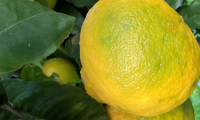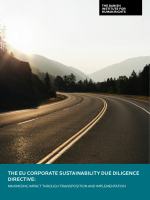L’Oréal takes in-depth look at labour conditions in its bergamot supply chain in Italy

L’Oréal, the world’s largest beauty company, commissioned the Danish Institute for Human Rights (the Institute) to conduct an impact assessment of its Bergamot supply chain in the Calabria region of Italy in order to identify and assess any actual and potential human rights impacts, with a particular focus on labour rights.
The assessment involved one of L’Oréal’s three essential oil producers and focused primarily on the bergamot citrus fruit. A secondary focus was on lemon as well as the wider citrus fruit sector in Southern Italy.
Bergamot in context
Bergamot is a PDO (protected designation of origin) citrus fruit grown in the most southern part of Italy between Villa San Giovanni and Gioiosa Ionica and between the foothills of the Aspromonte and the Ionian and Tyrenean seas in the province of Reggio Calabria.
75% of the total bergamot production is used for the extraction of essential oil, primarily for the beauty industry to create perfumes, the remaining 15% is for fresh fruits. Bergamot is of huge economic importance to the region, and additionally carries immense cultural value. There are nearly 1,300 smallholder farmers cultivating bergamot trees in Calabria. The average size of 50% of all plantations is rather small (2 ha), and the largest hardly exceed 20 ha.
A differentiated picture of labour risks in different citrus fruits
Prior to the assessment, expected risks in the agricultural sector in Italy evolved around widely reported labour exploitation of migrant workers, particularly from West Africa.
The assessment revealed a very differentiated picture of existing labour risks in bergamot vs. other citrus fruits from Southern Italy:
The assessment found no apparent labour exploitation on bergamot farms examined, which was a positive finding. Nevertheless, migrant workers living in “tent cities” at the edge of Italian society confirmed widespread exploitation in the harvest of mandarin, oranges, olives and other agricultural products.
Given that other citrus fruits are also used in the production of essential oils, including by the beauty industry, this observation highlights the importance of continued due diligence of L’Oréal in relation to their wider Italian supply chain.
The labour rights assessment, using the Institute’s Human Rights Impact Assessment methodology, complements the company’s wider risk assessment and due diligence approach.
The company has already rolled out these types of deep-dive assessments in other contexts. The current report represents an important milestone in L’Oréal’s on-going journey to communicate transparently about the company’s human rights impacts.





